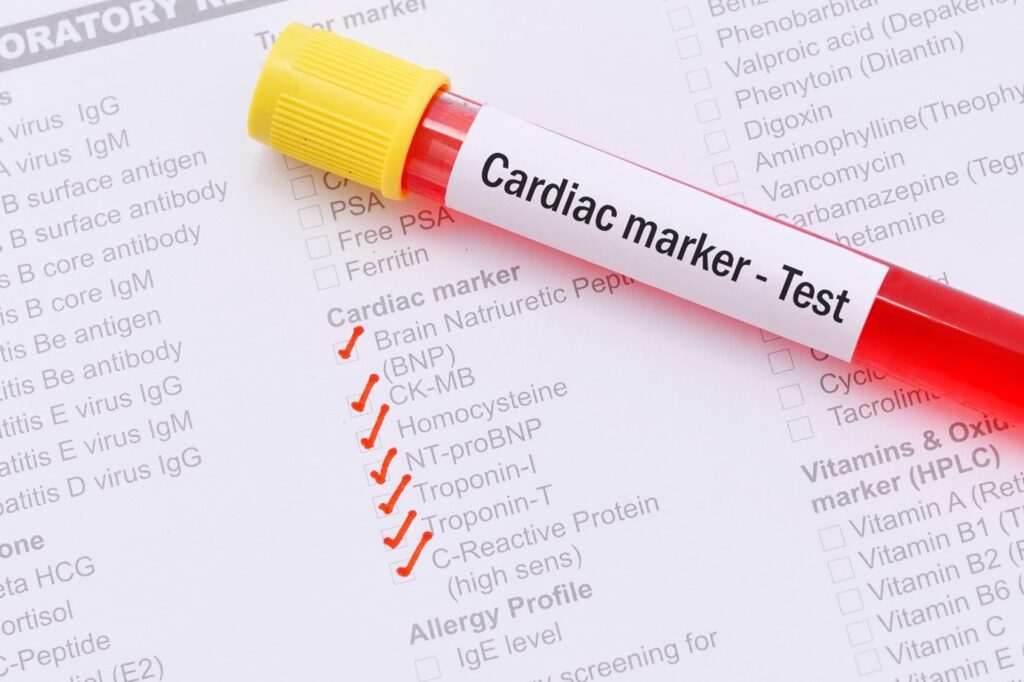What is a Cardiac Profile?
A Cardiac Profile is a series of tests designed to assess heart health, screen for heart diseases, and predict the risk of cardiovascular events such as heart attacks or strokes.
It includes blood tests that evaluate key heart markers, including
- Cholesterol levels
- Enzymes
- Proteins.
These markers can indicate heart damage or potential risk factors for future cardiac events.
When Should I Get a Cardiac Profile Checkup?
It’s recommended to undergo a cardiac profile annually, especially after age 40.
However, you should consider getting checked sooner if you experience symptoms like
- Chest pain
- Breathlessness
- Swelling in the legs or face, fatigue
- Heart palpitations.
What Does a Cardiac Profile Include?
A complete cardiac profile consists of various tests, such as:
- Lipid Profile: This measure of fats (cholesterol and triglycerides) in the blood to evaluate heart disease risk. It checks LDL (“bad” cholesterol), HDL (“good” cholesterol), and triglycerides.
- CKMB (Creatine Kinase Muscle & Brain): A protein that helps detect heart muscle damage, such as after a heart attack.
- Troponin: A highly sensitive biomarker for heart attacks, elevated within hours of a cardiac event.
- Brain Natriuretic Peptide (BNP): A protein that helps assess heart failure or cardiac dysfunction.
- C-reactive Protein (CRP): An inflammatory marker that increases during infections or heart disease and can predict the risk of heart attacks.
What Are the Benefits of a Cardiac Profile?
The primary benefit of a cardiac profile is the early detection of heart disease and its risk factors. This can lead to:
- Timely diagnosis of conditions like high cholesterol, heart failure, and arrhythmias.
- Risk assessment for future heart attacks or strokes based on markers like age, lifestyle, and family history.
- Ongoing monitoring of existing heart conditions, helping to adjust treatments as needed.
- Encouragement of healthy lifestyle changes such as improved diet and exercise to protect heart health.
- Cost savings can be achieved by detecting potential issues early and reducing the need for costly interventions later.
How Can I Maintain Good Cardiovascular Health?
Maintaining a healthy heart is crucial to longevity. Here are some tips to promote cardiovascular health:
- Adequate Sleep: Keep a goal for 7-9 hours per night to give your body time to recover.
- Healthy Diet: Eat heart-friendly foods like fruits, vegetables, and omega-3-rich foods.
- Exercise Regularly: Physical activity like walking, swimming, or cycling to strengthen the heart.
- Avoid Smoking and Excessive Alcohol: Both can harm blood vessels and increase heart disease risk.
- Manage Stress: Engage in relaxation practices such as meditation or spending quality time with your loved ones to help manage stress.
- Regular Checkups: Have regular cardiac health screenings to catch any potential issues early, especially if you have risk factors like hypertension or diabetes.
Get Your Heart Health Checked Today!
Healthood Diagnostics offers comprehensive cardiac screening to help you understand your heart health. Don’t wait for symptoms—schedule your checkup today to stay ahead of potential heart issues. Your heart’s health is in your hands!

